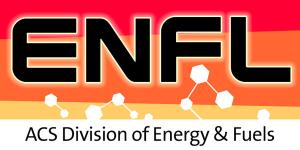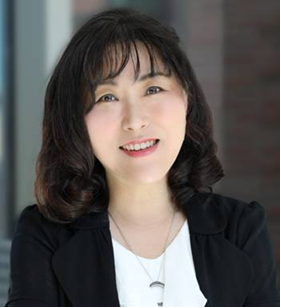
Ah-Hyung Alissa Park
Professor Ah-Hyung “Alissa” Park at the University of California Los Angeles (UCLA) has been selected by ACS Energy and Fuel Division for the 2025 Distinguished Researcher Award. Prof. Park is currently the Ronald and Valerie Sugar Dean of UCLA Samueli School of Engineering. She is also a Professor in the Department of Chemical and Biomolecular Engineering at UCLA. Prior to joining UCLA, she was the Lenfest Earth Institute Professor of Climate Change, Director of Lenfest Center for Sustainable Energy, and a Professor of Earth and Environmental Engineering and Chemical Engineering at Columbia University.
Prof. Park focuses on the most difficult challenge faced by humanity – climate change – via developing novel carbon capture, utilization and storage (CCUS) technologies, and is one of the most recognized researchers in the area of sustainable energy and CCUS. She has developed liquid-like Nanoparticle Organic Hybrid Materials (NOHMs) – self-suspended hybrid nanomaterials for CO2 capture from a wide range of sources including ambient air. Her recent studies have shown that NOHMs behave like particles in a secondary fluid and form unique hierarchical structures as they reach a critical concentration. The hierarchical structures enhance the transport behaviors in these unique fluid-particle systems, and thus she is now applying these NOHMs-based electrolytes with improved conductivity to electrochemically convert of CO2 to chemicals and fuels using renewable energy.
She is also working on unique carbonate chemistry to produce H2 and CO from waste gas streams and biomass. Her research on technologies for converting waste CO2 into a solid carbonate by reacting it with Mg and Ca-bearing minerals as well as industrial wastes such as steel slag, is innovatively integrated into the water-gas shift reaction to perform a reactive separation producing carbon emission-free H2. She is now employing this nature inspired carbonate chemistry to biomass conversion with carbon negativity. Her work on the bio-H2 from wet and salty biomass such as seaweeds is very interesting and unique. By reacting hydroxides with biomass with high water and salt contents, her team was able to produce high purity H2 in a single step alkaline thermal reaction under mild reaction conditions.
Prof. Park has demonstrated leadership in service to ACS and the profession. One of the first leadership positions that she held within Energy and Fuels Division (ENFL) was the program chair in 2015. Due to her excellent leadership in service, she was elected ENFL division chair in 2018. Her important leadership roles also include the Area Chair (CO2 Utilization) of the Mission Innovation Workshop on CCUS (2017) and the Area Chair (CO2 Use) for the National Petroleum Council Study (2019). Prof. Park’s impacts go beyond her own research labs. Twelve of her formal advisees are now faculty members at major universities including Imperial College London and Cornell University, and they are all making great progress in their research careers.
Prof. Park’s scientific and leadership contributions have been recognized by many awards including NSF Career Award (2009), ACS WCC Rising Star Award (2017), the U.S. C3E Research Award (2018), PSRI Lectureship Award at AIChE (2018), ACS ENFL – Emerging Researcher Award (2018), the Shell Thomas Baron Award at AIChE (2022), ACS ENFL Mid-Career Award (2022), Distinguished Engineering Educator Award, The Engineers’ Council (2025), and International Union of Pure and Applied Chemistry (IUPAC) Distinguished Women in Chemistry or Chemical Engineering Award (2025). She is also a Fellow of American Chemical Society, Royal Society of Chemistry, American Institute of Chemical Engineers, and American Association for the Advancement of Science.
An ACS Award Symposium in Honor of Alissa Park will be scheduled in ENFL Division at ACS National Meeting in Spring 2026.
